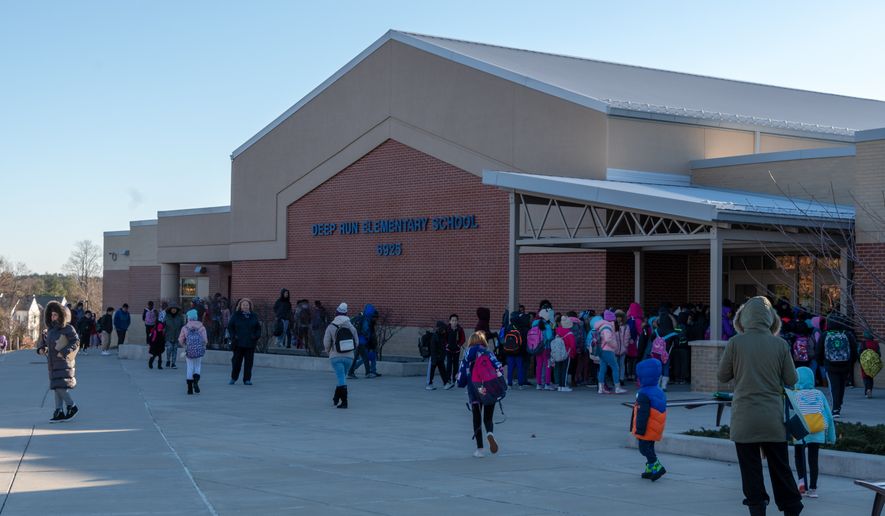Howard County, Maryland, says it would be allowed, under the 14th Amendment, to create a school board seat that only immigrants without documentation could vote for.
The county made the assertion last month while arguing before a federal appeals court to defend its current practice of having a designated student school board seat that only public school students can vote for.
Some county residents have challenged the idea, arguing it amounts to unconstitutional discrimination in voting, both against religious school students who lack a vote and against the county’s general electorate, which has no say in an elected post.
“It’s a zero-sum game,” said Michael Smith, a lawyer for the challengers. “To empower students to choose one of eight members of that board is to disempower the electorate. You have 12.5% of the voting authority of that board that’s removed from registered voters.”
Eight Maryland counties have a student member on their boards of education.
Howard County argued that picking the student is less like an election and more like an appointment because, even though students cast ballots, the candidates they can vote for are winnowed down by school officials and the board itself.
“This is just not a popular election. While students do vote, they do it as part of a very limited process,” said Amy Marshak, the lawyer for the county.
A lower court agreed, ruling in the county’s favor and turning aside a challenge from two families with school-age children who are shut out of the voting and who say it violates their First Amendment religious rights and the 14th Amendment’s Equal Protection Clause.
But the judges of the 4th U.S. Circuit Court of Appeals weren’t so certain.
“Is it really an appointive process if there’s a vote being taken?” said Judge Roderick Young, a Trump appointee.
And if it is an election and not an appointment, then it does get tangled with the 14th Amendment’s guarantee of voting rights, judges reasoned.
“You’ve got this additional seat that is not subject to the one-person, one-vote rule. That’s a problem,” said Chief Judge Albert Diaz, an Obama appointee.
Lawyers said roughly 27,000 students cast ballots for the seat. By contrast, the county’s at-large seats were voted on by nearly 100,000 people in the 2022 election.
The student seat has limited powers in that its holder cannot vote on budget or personnel matters, though the position can still be momentous. The plaintiffs in the case said it was the student member who cast the deciding vote to keep schools closed longer during the pandemic.
The appellate judges said there is no constitutional right to vote for a school board and if the student member is clearly appointed, then that’s the end of the matter. But once it’s deemed an election, then the county must prove its restrictions on who can vote are legitimate.
A key moment in the oral argument before the appeals court came when Judge A. Marvin Quattlebaum Jr., a Trump appointee, searched for what other populations would be eligible to have a school board member designated for them. He wondered, in particular, about immigrants who are in the country illegally.
“So if Maryland decided or the school board decided that undocumented aliens aren’t adequately represented, constitutionally could a board member be selected by undocumented aliens in the town?” Judge Quattlebaum said.
After some hemming, Ms. Marshak said that wouldn’t run afoul of the 14th Amendment.
“I think it would not violate the one-person, one-vote principle of the Equal Protection Clause,” she said, though she wondered if other parts of the law might come into play.
Maryland, in fact, does allow immigrants, including those in the country illegally, to vote in local elections if a community approves the move. But there is no current election reserved only for them.
The sides are now awaiting a ruling from the three-judge panel.
J. Christian Adams, president of the Public Interest Legal Foundation, which is helping the plaintiffs in the case, said under Howard County’s vision, a GOP-led community could decide gun rights aren’t properly represented on their school board and could designate a seat for National Rifle Association members.
“There’s no limiting principle here and it’s dangerous because it gives out favors to preferred political factions,” Mr. Adams told The Washington Times.
• Stephen Dinan can be reached at sdinan@washingtontimes.com.




Please read our comment policy before commenting.